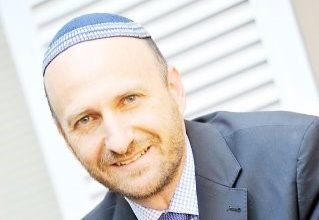OpEds
Reflections on returning to shul

The rhythms of Jewish life largely revolve around the synagogue. It’s where community members regularly come together for prayer, study, and to celebrate festival and life-cycle events.
In addition to the religious aspect, our shuls provide a vital social function and support system, not just for members but for occasional attendees as well. It has often been said that one of the hallmarks of our community is its non-judgemental nature when it comes to degrees and modes of religiosity. As a result, people feel quite comfortable attending different synagogues, knowing that as a matter of course, no-one will question their presence or look askance at them.
In view of this, the prolonged closure of our shuls has been one of the most difficult aspects of the lockdown for our community. Thankfully, conditions have since eased to allow for a resumption of communal prayers – subject of course to necessary strictures – in time for the yamim noraim. It was uplifting indeed to celebrate Rosh Hashanah in shul, the first yom tov of the year where this was possible, and to see once more throngs of community members on their way to or returning from services.
That communal prayers could take place at all was due to the enormous effort to ensure that proper protocols and facilities were put in place beforehand. For that, I pay fulsome tribute to all those responsible, from Chief Rabbi Dr Warren Goldstein and the staff of the Union of Orthodox Synagogues through to the various rabbonim and synagogue leadership. A special thank you is due to Professor Efraim Kramer for his extensive work with different communities countrywide to implement safe ways to attend shul. I further commend our community as a whole for its co-operation in adhering to these protocols, and urge that it continues to do so for the remaining yamim tovim.
Hate speech under the spotlight
Hate speech cases in South Africa have been on hold since the Supreme Court of Appeal declared last November that sections of the Promotion of Equality and Prevention of Unfair Discrimination Act were vague and overly broad, and hence unconstitutional. This week, the Constitutional Court convened to adjudicate this all-important matter (Qwelane versus SA Human Rights Commission and Another, case number 13/20). It’s a complex matter, one that entails a difficult balancing act between determining what can be regarded as legitimate freedom of expression and what constitutes hurtful speech that violates equality and human dignity and should therefore be proscribed. The outcome of this case will have significant ramifications for how the South African Jewish Board of Deputies will approach the courts for relief in terms of confronting cases of antisemitism, as well as for its long-running complaint against Congress of South African Trade Union International Relations Secretary Bongani Masuku. Consequently, the board worked with the SA Holocaust & Genocide Centre, which was an amicus curiae (friend of the court) in the case, to ensure that the specific concerns of our community were given expression.
- Listen to Charisse Zeifert on Jewish Board Talk, 101.9 ChaiFM, every Friday from 12:00 to 13:00.
